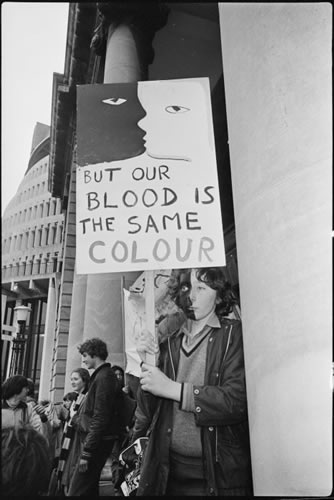 Apartheid, the forced legal segregation of blacks and whites in South Africa, did not officially and completely end until 1993. The legacy of this cruel system has shaped the cultural and political structures of South African society, and still does, in profound ways.
Apartheid, the forced legal segregation of blacks and whites in South Africa, did not officially and completely end until 1993. The legacy of this cruel system has shaped the cultural and political structures of South African society, and still does, in profound ways.Segregation was nothing new in the African colonies. Most European colonial governments, either officially or unofficially, promoted the domestic separation of ethnic groups. In South Africa, however, these policies were taken to an extreme not seen elsewhere. They were institutionalized and enforced; the practice became known as apartheid.
Apartheid was one of the most important factors that influenced South Africa to leave the British Commonwealth in 1961 and become a sovereign nation. The Commonwealth did not condone the policies of forced legal segregation, which were supported by most white inhabitants in South Africa. After the formation of South Africa as an independent republic, apartheid was codified into law, becoming broader and encompassing more aspects of everyday life. The capital, Johannesburg, functioned as a "whites only" city, with blacks being unable to stay in the city at night without special permits. Blacks were restricted to "suburbs" such as Soweto, the infamous South African slum, or "homelands:" areas with much fewer resources and utilities than areas occupied by whites. The horrors of apartheid are well-documented, and need not be covered in depth for the purposes of this blog. Here, we are more concerned with how apartheid finally crumbled.
 The end of apartheid came about, in large part, because of significant opposition to the South African regime, both from internal foes and a large international movement. A widespread boycott prevented sports teams and entertainers from competing or performing in South Africa.
The end of apartheid came about, in large part, because of significant opposition to the South African regime, both from internal foes and a large international movement. A widespread boycott prevented sports teams and entertainers from competing or performing in South Africa. 


1 comment:
Great post Darius! You have really helped me understand the anti-colonial movement better (its focus on segregation rather than on the full history of colonial rule) and, therefore on its link with the American Civil Rights Movement.
Post a Comment